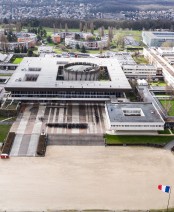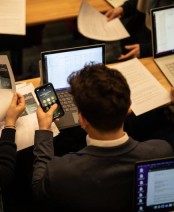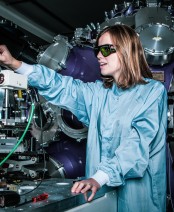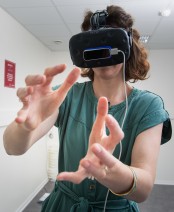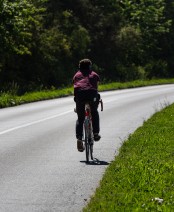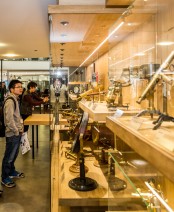Awards for Four Group Science Projects of the X2019 Class
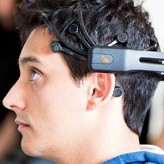
The 13 Group Science Projects (GSPs) selected by the education and research departments among the 113 GSPs of the X2019 class were presented on September 13 before a jury composed of academic and business personalities.
Three projects were awarded during this final examination and a fourth was awarded a Special Jury Prize.

A first project is focused on the design of an artificial jellyfish for coral areas monitoring. Led by Baptiste Jouron, Erwan Umlil, Thomas Ledevin and Marie-Anne Carpine, it plans to develop a jellyfish robot for monitoring coral areas, taking into account constraints such as watertightness, difficulty of access, resistance to environmental conditions, and respect for marine life and coral integrity. Laurence Bodelot, assistant professor in the Mechanics Department and researcher at the Solid Mechanics Laboratory (LMS), is coordinating the project and Aline Becq, head of the prototyping space at the Drahi-X Novation Center, is the tutor.

The Optogenetics project developed by Gaëtan Lefebvre, Justine Duval, Maïlys Quilhot, Solène Ecomard and Yassine El Janati focuses on the control of immune cell activation by light with potential applications in neuroscience and other fields. It is coordinated by Yves Mechulam, Director of Research at the CNRS, Professor at the Ecole Polytechnique and Pierre-Damien Coureux, Senior Lecturer at the Ecole Polytechnique while Philippe Bousso, Director of the Department of Immuology at the Institut Pasteur is the tutor.
The project entitled Spectral Rigidity led by Cheng-Yen Wu, Mathilde André, Louis Detzen, Hugo Mathevet, Sacha Guerini and Ziru Niu and based on a seminal article by the American-Polish mathematician Marc Kac entitled "Can we hear the shape of a drum?" benefited from the tutoring of Matheus Silva Santos, director of research at the CNRS and researcher at the Laurent Schwartz Mathematics Center (CMLS). Javier Fresán, professor at l’X, was the coordinator.

A Special Prize of the Jury was awarded to the project of preparation to the International Physicits' Tournament (IPT) which gathered Katia Michielsen, Paul Rovel, Adrien Lopez, Jacques Ding and Stanislas Temam-Basse, under the coordination of Guilhem Gallot, researcher at l’X. The team took part in the French Physicists' Tournament (FTP) with seven problems to solve, ranking second.
The Group Science Project is carried out throughout Year 2 of the Ingénieur polytechnicien Program. For half a day every week, all students of the Program, in groups of four or five, must identify and resolve a major problem, or work on designing and producing an innovative technology demonstrator. Students must independently apply, over a long period of time, one or more scientific disciplines and an appropriate method and organization.
Subjects for the Group Science Project may be chosen in conjunction with one of the labs of École Polytechnique, a third-party research organization, a business or a state-owned company.
The Group Science Project involves people from the École Polytechnique, as well as its close partners, in particular the École Polytechnique Foundation.
Topic of the 9 other projects in competition:
Teaching video game creatures to walk
Quantum Computing & The Traveler Problem
Development of digital tools and mechanical models to assist in the evaluation of artistic gymnastics performances
Computing carbon storage in agroforestry plots
Automatic generation of dialogues between non-player characters
Algorithms and competitive programming (SWERC)
Light of the future
Optimization of the optical properties of polariton microcavities for quantum engineering
Blockchain and local currencies
"Teams that were not selected should not, however, stop believing in and promoting their project. In recent years, there have been good examples of projects that have not been awarded prizes, but which have found other ways to promote their projects or have won prizes in other competitions," said Dominique Rossin, Vice-Povost for Education at the École Polytechnique.
The awards will be presented at a ceremony on December 3.
